3.5 Miles Later
A Walking Revelation I wasn't looking For, Except That Maybe I was. The Who, What, Where, When, and How, of Change
The other day I took an intentional walk for the first time in months. I walk the dog multiple times a day, but this was a different kind of walk. This was a walk for the purpose of exercise, a no-small-dogs-who-tire-after-10-minutes-allowed kind of walk. Three-and-a-half miles later, I’d made a decision.
I told a friend the other day that I can always tell when I’ve spent too much time on instagram because my whole attitude shifts. Classic symptoms of overconsumption include: irritability, boredom, a feeling of meaninglessness towards “everything”, a lack of creativity, the inability to hear my own thoughts, feelings of alienation, information constipation (an inability to process all the things), and compassion fatigue—just to name a few. The morning of my intentional walk I felt all of this and more, and knew that the only way to shift my disposition was to move (literally) away from the screens.
As I write this, the graduation garland from 2 weeks ago is still hanging on my mantle, and dance recital costumes are hanging in my daughter’s closet in anticipation our last big event until we declare it officially summer break. I spent my walk reflecting on this season, the dreams I’m dreaming, the work God is doing, and the numerous things I often lament that I don’t have time to do.
After my walk, I knew that if I want to feel differently, I need to make some changes that reflect my actual intentions and orient me towards my goals and hopes. Simply, if I want to feel differently, I need to live differently. I need to make decisions about how or what I give my attention and not imagine that it’s happening to me, as if I can do nothing to affect the change I long for. Reflecting on this brought me back to a book I read last year, You Are What Your Love: The Spiritual Power of Habit, by James K.A. Smith. The subtitle is a simple summation of the major theme of this brilliant (and highly recommended) work.
Early on in the book, Smith quotes Geoff Dyer, who wrote that “You’re deepest desire…is the one manifested by your daily life and habits.”1
When I got honest with myself on my walk, I had to admit that if this is true, then my habits need some refining. My overconsumption of media is a form of self-sabotage, a willful distraction from the truest longings I carry around my art and my work, and the ways I engage with the world. The longer I walked, the less I liked what this deep-dive investigation into my habits is revealing about me in this season.
There are real and seemingly immovable obstacles in my path that make accomplishing certain dreams and hopes nearly-impossible, but I have to wonder how much of my angst is self-inflicted on account of having developed some poor habits in recent years? I reflected on ways that my online immersion of late, has been influencing my dreamscape and my values around what I might consider a “good life”. The impact hasn’t all been negative, but my “symptoms” reveal unwelcome side effects. Listening to the birds and the leaves rustling in the trees, I let my shoulders sag with what felt like relief(?), as I wondered what might change if I were willing to work some old muscles in new ways? What might I discover if I deliberately pursued the path less traveled? What creative work is being snuffed out by the deluge of content crowding out my brain space?
I straddle the uncomfortable space of feeling as if I need to stay connected to the inter webs in order to keep doing my work, even when I am worn thin and want to disappear for a minute (or months). Many writers I know feel a similar angst. In an effort to navigate this tension, I have developed liturgies and rhythms that, it turns out—at least for the moment—are hurting more than they are helping. A fragmented, dis-integrated mind is not an asset to our creative callings.
While walking, I considered the question, what happens when “we don’t recognize cultural practices as liturgies—when we fail to realize that these aren’t just things we do but things that do something to us”?2
By the time I returned to my porch I knew that what I need most in this season is quiet space to develop new liturgies, revive old habits, refine my intentions, and work old muscles in new ways. So, I made a list of a few simple things I intend to do this summer.
This summer I intend to:
Read a huge stack of books. Some of these are for a class I am teaching in the fall (The Great American Novel), and some are on spiritual formation as part of my ongoing education and personal and spiritual development.
Walk regularly. I recently signed up for a training program not for the purpose of running any races, but for the purpose of re-training my body and soul for the race Paul talks about in Corinthians.3
Make more art. Last week I shared about my upcoming visual Memoir workshop and I am also still at work on my Artist’s Deck (This month’s cards are nearly complete!)
Dream. I’ve been carrying around some wild dreams these last few years and there is a fun and curious energy around them when I let myself imagine what could be. I want to reclaim some mental space to sit with these things in prayer, and practice the art of discernment around whether or not to entertain these ideas further.
Be with my people. My middle son leaves for college in August and I’ve got another kid learning to drive right now. These teenage-young-adult days are the Holy Wild4 of parenting and I do not want to miss any of it.
Write. That’s all I am going to say about that for now.
what happens when “we don’t recognize cultural practices as liturgies—when we fail to realize that these aren’t just things we do but things that do something to us”?
James K.A. Smith writes, that “we need to become aware of our immersions….We need to recognize that our imaginations and longings are not impervious to our environments and only informed by our (supposedly “critical” ) thinking. To the contrary, our loves and imaginations aer conscripted by all sorts of liturgies that are loaded with a vision of the good life. To be immersed in those “secular” liturgies is to be habituated to long for what they promise.”5
With all of this goodness begging for my full attention this summer, I want to immerse myself in the good life that God has given me right where I am, in real time. I want to be habituated to these ordinary moments and the people I see regularly in my zip code. I want to pay attention to the Story rattling around in my spirit and write as one whose habits are part of an intentional, thoughtful formation.
In order to honor this longing and these intentions, I have decided what I will not do this summer is engage with social media. I am taking a firm break from Instagram and Facebook for the entirety of the summer. I do intend (and look forward to) continuing to writing through this journey here on Substack.
“We all carry some governing Story in our bones that shapes our work more than we might realize because that Story has taught us what to love (…and you might not love what you think you love because you might not realize what Story has really captured your imagination).”
James K. A. Smith
How do you intend to spend your summer? How would you respond to these questions,
What might change if I were willing to work some old muscles in new ways?
What might I discover if I deliberately pursued the path less traveled?
What creative work is being snuffed out by the deluge of content crowding out my brain space?
You Are What You Love, The Spiritual Power of Habit, by James, K.A. Smith (Pg. 29)
You Are What You Love, The Spiritual Power of Habit, by James, K.A. Smith (Pg. 32)
Do you not know that in a race all the runners run, but only one gets the prize? Run in such a way as to get the prize. 25Everyone who competes in the games goes into strict training. They do it to get a crown that will not last, but we do it to get a crown that will last forever. 26Therefore I do not run like someone running aimlessly; I do not fight like a boxer beating the air. 27No, I strike a blow to my body and make it my slave so that after I have preached to others, I myself will not be disqualified for the prize. (1 Corinthians 9:24-27, NIV)
The Holy Wild is a brilliant book by Mark Buchanan that is well worth a read and a re-read. I recently listened to this interview with Mark and loved it. Pay particular attention to what he says about how being in nature inspires the indigenous women he and his wife work with, to create art.
You Are What You Love, The Spiritual Power of Habit, by James, K.A. Smith (Pg. 38)

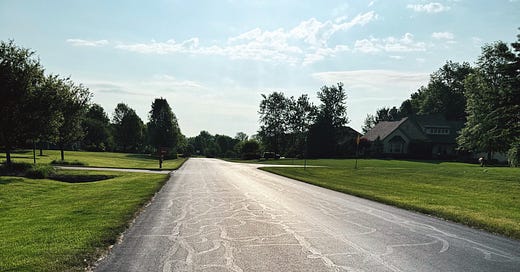



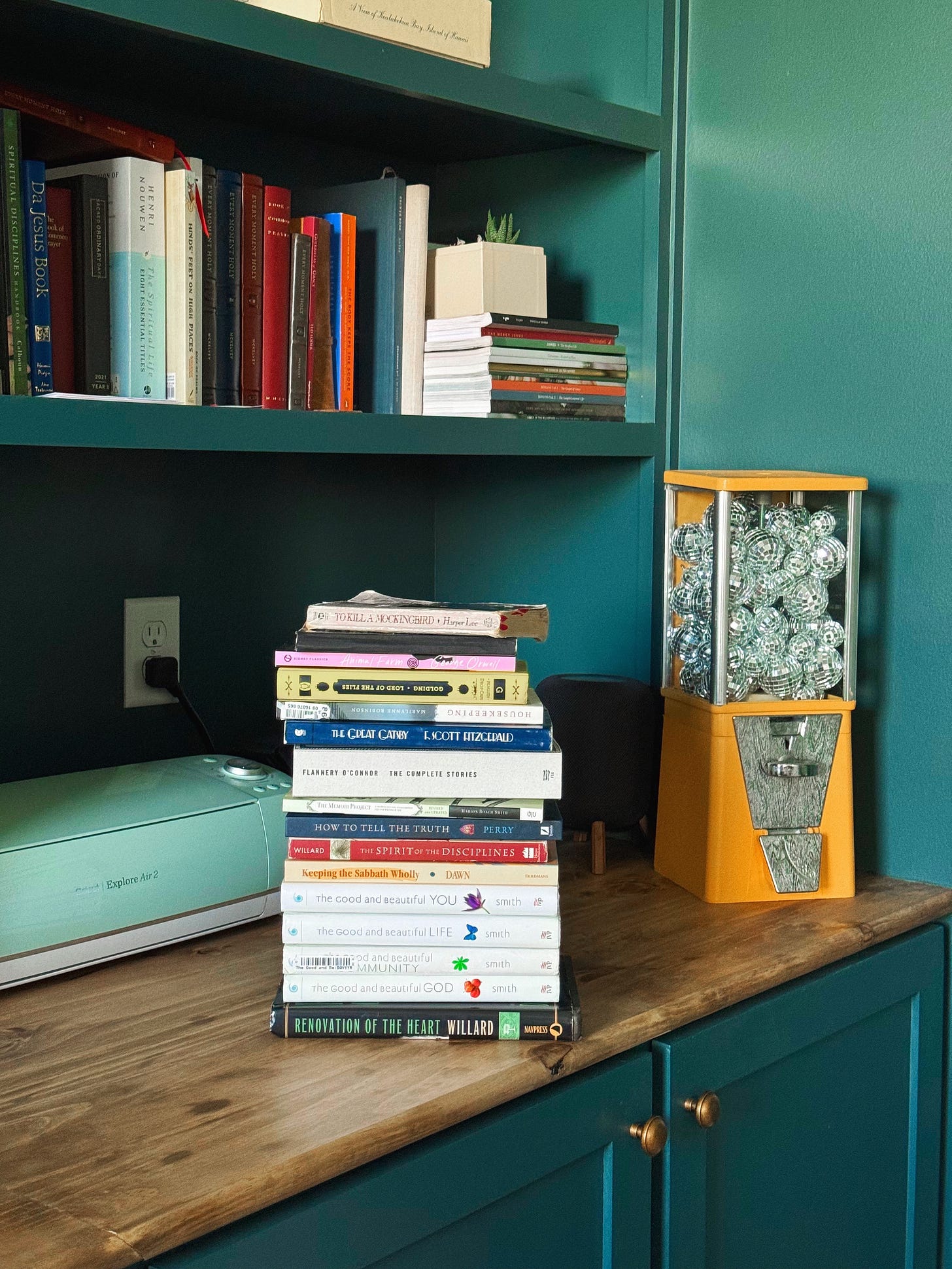
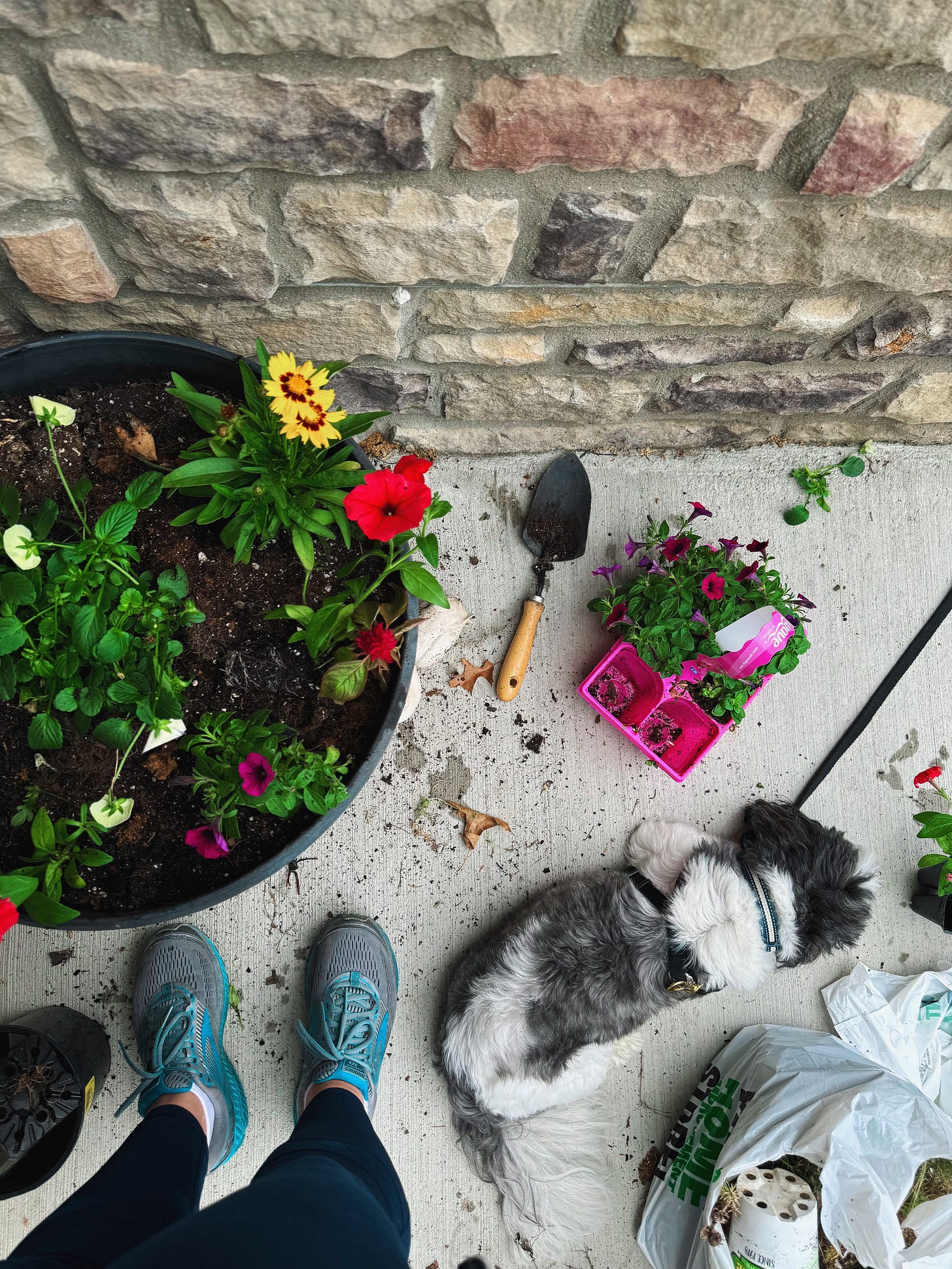
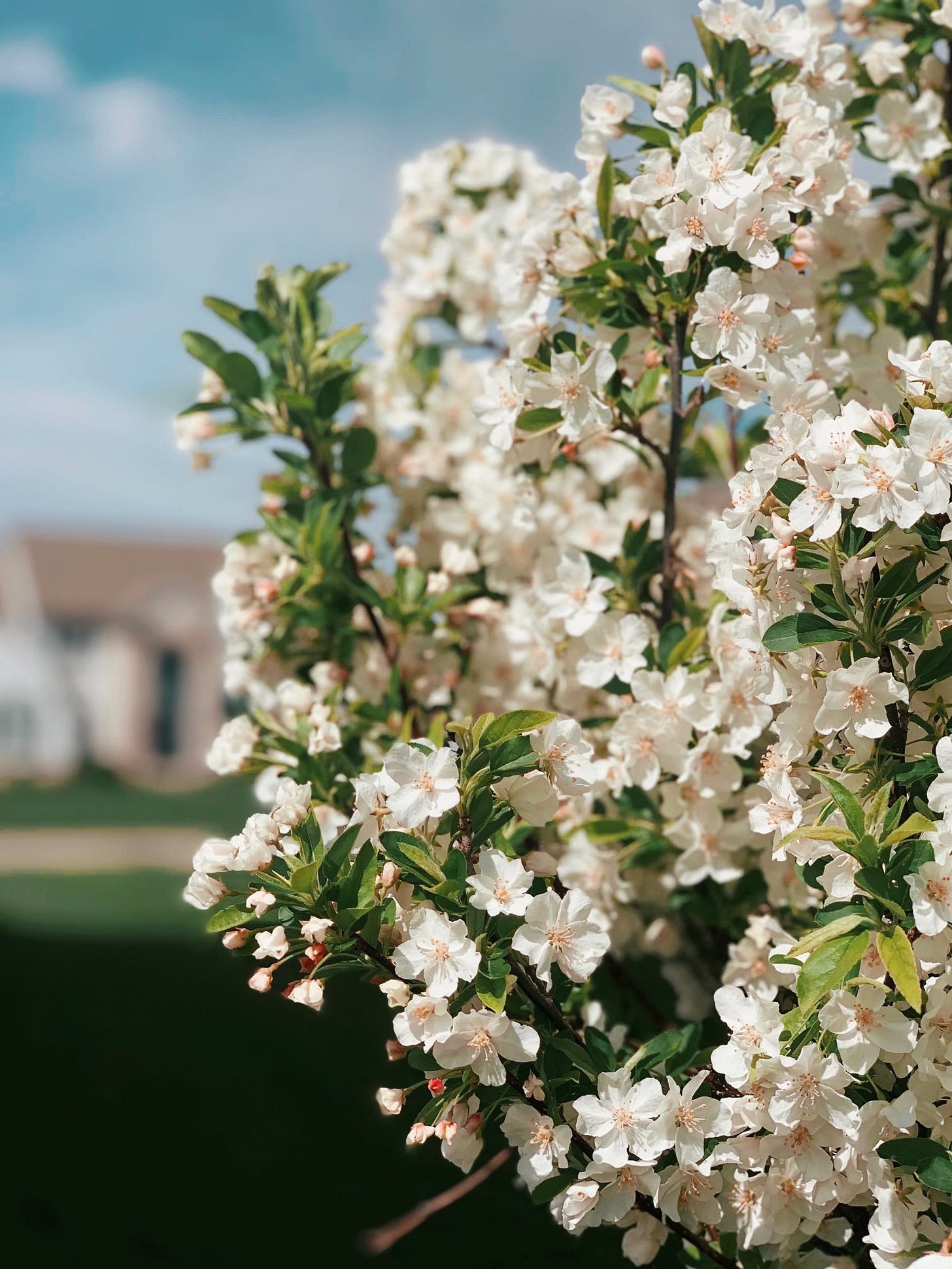
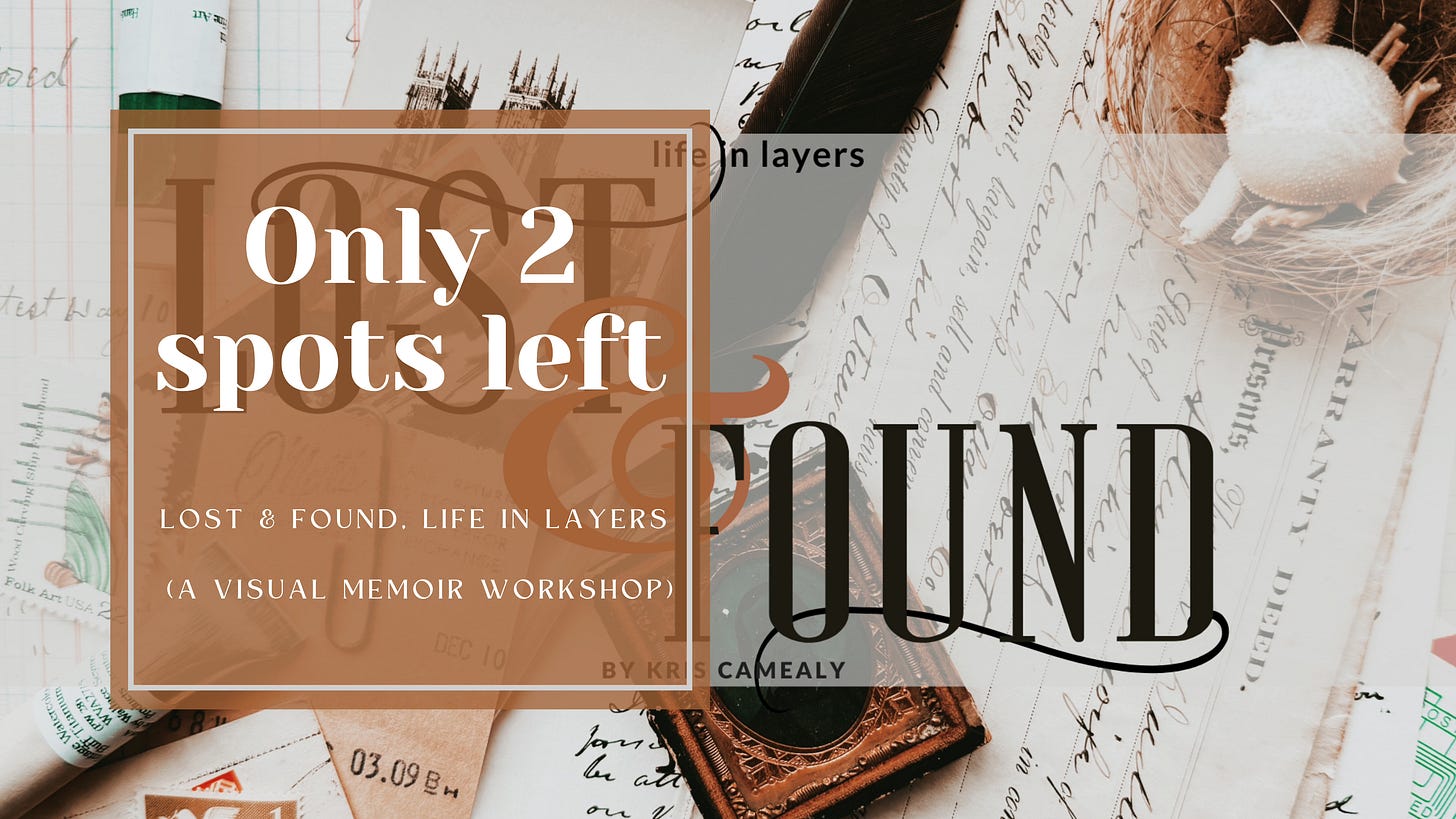
I read a quote somewhere recently that went something like this: if you don’t have time to do the things you love, stop doing other things. It sounds so simple! But we all know the challenges this world with its constant barrage of information, pretty pictures, opinions, and blah blah blah brings. Thanks for always setting the higher example, Kris. You inspire me so.
Substack is so smart—it showed me your post in my feed, maybe because I also just wrote a post linking to James K.A. Smith’s book! I resonate with so much of what you’re sharing. Thank you for letting us into a piece of your inner life. ♥️